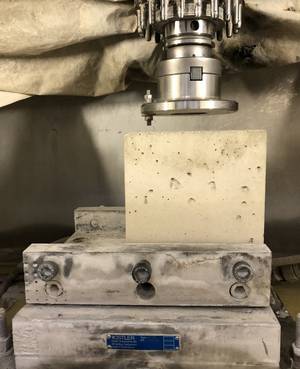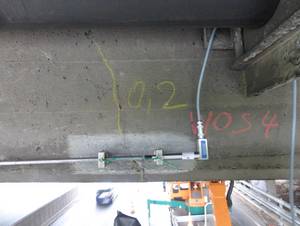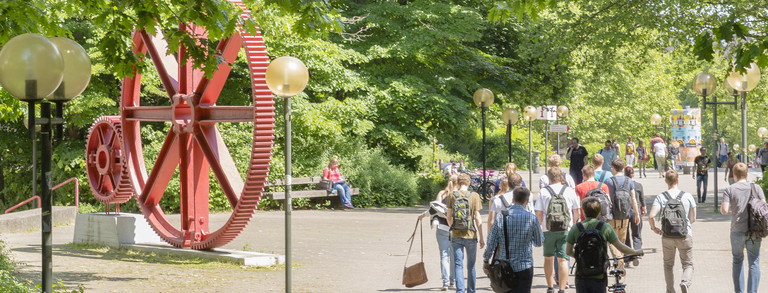Optimization of Tools and Machines
In the design of tools and machines, there are usually two main goals: The tools and machines should be on the one hand as efficient as possible, in particular to use a minimized amount of energy. In addition, they should remain functional as long as possible. To investigate how long they are working, statistical reliability analysis is used. The optimization in terms of efficiency and reliability is carried out by means of statistical experimental design and optimization. With these methods, Subproject B4 "Statistical process modelling for machining of inhomogeneous mineral subsoil" of the SFB 823 "Statistical modelling of nonlinear dynamic processes", optimizes diamond impregnated tools used for the core drilling of concrete.
Contact: Prof. Dr. Christine Müller

Endurance Analysis of Buildings
The endurance of buildings depends heavily on random factors such as environmental factors and irregular loading, so that more and more statistic procedures have been used recently to evaluate the durability of buildings. For example, the Subproject B5 "Statistical methods for damage processes under cyclic load" of SFB 823 "Statistical modelling of nonlinear dynamic processes" deals with the safety of prestressed concrete bridges. Field tests and laboratory tests are carried out for this purpose. In the field tests, cracks in a bridge are continuously recorded and statistically evaluated, while single prestressed concrete beams are exposed to known cyclic loads in the laboratory tests. These laboratory experiments facilitate the development of statistical forecasting methods for the endurance of the beams and, finally, of the bridge.
Contact:

Statistics in Materials Science
Materials Science deals with the properties of materials and these are often exposed to random influences. For example, the fatigue of materials is caused by the random growth of cracks and by climate-related corrosion. The Chair "Statistics with applications in the field of engineering" deals in particular with crack initiation and crack growth. On the other hand, the Subproject B1 "Modelling and controlling thermo-kinetic coating processes" of SFB 823 " Statistical modelling of nonlinear dynamic processes", investigates how the coating of materials can be optimized.
Contact:


![[Translate to English:] [Translate to English:]](/storages/zentraler_bilderpool/_processed_/1/0/csm_Mathegebaeude_tower_65b0807b30.jpg)
![[Translate to English:] [Translate to English:]](/storages/zentraler_bilderpool/_processed_/0/2/csm_Erstsemensterbegruessung_02_f9632ebd02.jpg)
![[Translate to English:] [Translate to English:]](/storages/zentraler_bilderpool/_processed_/9/0/csm_Seminarraumgebaeude_Studienstart_7_fbbfa00e02.jpg)
![[Translate to English:] [Translate to English:]](/storages/zentraler_bilderpool/_processed_/c/c/csm_Mathematik_Econometrics_e89197daf2.jpg)
![[Translate to English:] [Translate to English:]](/storages/zentraler_bilderpool/_processed_/3/0/csm_steigende_Stufen_92633e28d7.jpg)
